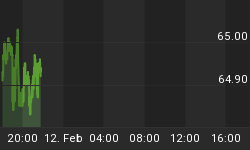Aside from cost, the major problem for oil importing countries is getting the purchases safely home. Essentially, there are only two options - pipelines and maritime transport.
Both are vulnerable to attack and this is increasingly preoccupying Chinese leaders, especially as, according to China's Ministry of Industry and Information Technology, China's dependence on imported oil rose to 55.2 percent for the first five months of 2011, surging to 9.61 million barrels per day.
What to do to secure uninterrupted supplies of 'black gold?"
Negotiate.
In a development with significant implications for the Pentagon's professed "full spectrum dominance," (i.e., quash all military opposition) the Hindustan Times reported that Beijing is cautiously sounding out India about the possibility of joint naval patrols in the Indian Ocean to safeguard tanker traffic.
An official of China's Development Research Centre under the State Council, speaking on condition of anonymity, said, "The Indian government should take the initiative to propose a cooperation mechanism on sea-lanes in the Indian Ocean.'' Realizing the contentiousness of such a proposal with immense understatement the bureaucrat added, "China cannot initiate such a proposal. The U.S. and Japan will not support China's move" before concluding, China has to protect its ships on its own. The US is not an ally. India is not an ally."
Actually, China has had an intermittent naval presence in the Indian Ocean since December 2008, when it sent three warships to liaise with the Combined Task Force 150 (CTF 150), set up after the 11 September attacks to patrol the Arabian Sea and the coast of Africa to combat terrorism. Under command of the fleet's flagship DDG-169 Wuhuan destroyer, the task force of two destroyers and one supply ship arrived in waters off the Somali coast in order to provide security for Chinese merchantmen, as of the 1,265 Chinese merchant ships transiting the Gulf of Aden in 2009, seven were attacked by pirates.
Indo-Chinese naval cooperation is not as far-fetched an idea as it might appear on the surface. Nine months after the Chinese flotilla began operations off Somalia Indian National Security Advisor Shiv Shankar Menon said, "Is it not time that we began a discussion among concerned states of a maritime system minimizing the risks of interstate conflict and neutralizing threats from pirates, smugglers, terrorists," calling for discussions among "Asian states" and other powers on the issue.
Many in China think that the time has come for a more assertive Chinese maritime presence. Li Li, a strategist in the South and South East Asian and Oceanic Studies Institute of the China Institute of Contemporary International Relations observed, "China has not announced its Indian Ocean policy. It will take time. China's rising so fast. It is, more and more, in China's interests to protect our sea-lanes in the Indian Ocean,'' hardly surprising, as China now receives 70 percent of its petroleum imports via the Indian Ocean.
Such a move will doubtless ring alarm bells in Washington, as except for the Somalia task force China's Navy has largely limited itself to the country's coastal waters. The Pentagon's perceptions of Chinese naval capacities are shifting dramatically however, as last week's announcement that the country's first aircraft carrier, the refurbished Soviet Varyag had begun sea trials. Once fully operational, the Chinese carrier should be able to carry up to 40 Sukhoi 33-derived J-15 naval air-superiority fighters and up to 20 rotary aircraft, including Ka-28 anti-submarine helicopters
While hardly a threat to the Pentagon's current 11 operational carrier task force groups, China's maritime accomplishment led U.S. Secretary of State spokeswoman Victoria Nuland to pontificate, "We welcome any explanation from China about why it needs this kind of equipment." Combined with China's overtures to India, no doubt Pentagon wargamers are going back to reread their well-thumbed copies of Mahan's Influence of Seapower upon History.
A number of practical concerns will impact a Sino-Indian naval alliance, should it ever come to pass. First and foremost, the countries are fierce economic rivals.
Secondly, in 1962 India and China fought a brief but bloody war in the Himalayas over a disputed frontier, the final delineation of which yet remains to be resolved.
And last but hardly least, China for many years has been a close ally of India's arch rival Pakistan, and has thrown millions of dollars into helping Islamabad develop its Gwadar port on the Arabian Sea.
Accordingly, while Beijing's trial balloon of nautical cooperation would represent a major regional geostrategic shift, for the moment it remains just that - a trial balloon.
Source: http://oilprice.com/Energy/Energy-General/Joint-Chinese-Indian-Oil-Tanker-Patrols-Possible.html
By. John C.K. Daly of OilPrice.com
















